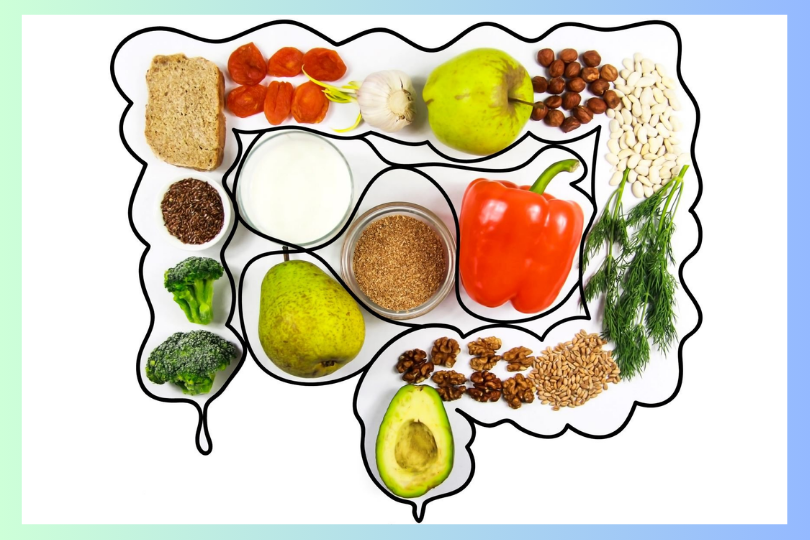
10 Effective Ways to Improve Gut Health
Are you seeking lasting relief from persistent digestive issues and a significant boost to your overall health? Your gut, a complex and dynamic ecosystem, holds the key. This detailed guide delves deeper into 10 effective strategies to cultivate a thriving gut microbiome, providing specific dietary recommendations, actionable steps, simple exercises, and a handy reference table to empower your journey towards optimal gut health.
Understanding Your Gut Health: The Foundation of Well-being
Your gut microbiome, a vast community of trillions of microorganisms residing in your digestive tract, is far more than just a digestive aid. It’s a vital organ influencing your immunity, nutrient absorption, mental health, and even your risk of chronic diseases. An imbalance in this delicate ecosystem, known as dysbiosis, can manifest as bloating, gas, abdominal pain, irregular bowel movements, fatigue, skin problems, and even mood disturbances. Understanding the signs of an unhealthy gut is the crucial first step towards restoring balance and achieving lasting relief.
10 Ways To Improve Your Gut Health
Eat More Fiber: Fueling Your Gut’s Good Bacteria
Dietary fiber, the indigestible part of plant-based foods, is the primary fuel source for your beneficial gut bacteria. When these bacteria ferment fiber, they produce short-chain fatty acids (SCFAs) like butyrate, propionate, and acetate. SCFAs have numerous health benefits, including reducing inflammation, strengthening the gut lining, and regulating appetite.
- What to Eat (High-Fiber Foods):
- Whole Grains: Include whole wheat atta, jowar, bajra, oats, and brown rice in your daily meals. Opt for whole grain versions of bread and pasta.
- Lentils and Legumes: Make all types of dal (toor, moong, masoor), chickpeas (chana), kidney beans (rajma), and other legumes staples in your diet.
- Vegetables: Aim for a wide variety of colorful vegetables like spinach (palak), cauliflower (phool gobi), broccoli, carrots (gajar), beans (phalli), eggplant (baingan), and okra (bhindi). Don’t forget leafy greens!
- Fruits: Enjoy fruits like apples, bananas, guavas, oranges, berries (strawberries, blueberries), and pears. Eat the skin whenever possible (wash thoroughly).
- Nuts and Seeds: Incorporate almonds, walnuts, chia seeds, flax seeds (alsi), and pumpkin seeds into your snacks or meals.
- What to Do:
- Gradually increase your fiber intake to avoid digestive discomfort like bloating and gas.
- Aim for at least 25-30 grams of fiber per day.
- Drink plenty of water as fiber absorbs water and helps with smooth bowel movements.
2. Eat Probiotic-Rich Foods: Introducing Beneficial Bacteria
Probiotics are live microorganisms that, when consumed in adequate amounts, confer a health benefit on the host. They can help replenish and diversify your gut microbiome.
- What to Eat (Probiotic-Rich Foods):
- Curd (Dahi): Plain, unsweetened dahi is an excellent and readily available source of live and active cultures.
- Lassi: This traditional Indian yogurt-based drink can be a refreshing and probiotic-rich addition to your diet. Opt for less sugary versions.
- Kanji: A fermented drink made from carrots, beetroot, and mustard seeds, kanji is a regional probiotic powerhouse.
- Traditionally Fermented Pickles (in moderation): Some traditionally fermented pickles contain beneficial bacteria. However, be mindful of their high salt content. Look for naturally fermented varieties without added vinegar.
- What to Do:
- Include probiotic-rich foods in your daily diet.
- If considering probiotic supplements, consult a healthcare professional for personalized recommendations.
3. Limit Processed Foods and Artificial Sweeteners: Protecting Your Gut’s Harmony
Processed foods often contain additives, unhealthy fats, emulsifiers, and artificial sweeteners that can negatively impact the composition and function of your gut microbiome, potentially promoting inflammation and dysbiosis.
- What to Eat (Limit/Avoid):
- Highly Processed Foods: Packaged snacks (chips, biscuits), instant noodles, ready-to-eat meals, sugary cereals, and processed meats.
- Artificial Sweeteners: Found in many diet sodas, sugar-free products, and some packaged foods (e.g., aspartame, sucralose, saccharin).
- Excessive Refined Sugars: Found in sugary drinks, sweets, and many processed foods.
- Excessive Unhealthy Fats: Found in fried foods and many processed snacks.
- What to Do:
- Prioritize cooking meals from scratch using fresh, whole ingredients.
- Become a mindful shopper and read food labels carefully.
- Choose whole, unprocessed snacks like fruits, nuts, and seeds.
- Opt for natural sweeteners like honey or jaggery in moderation.
4. Stay Hydrated: Supporting Digestive Function
Water is crucial for overall bodily functions, including digestion and maintaining a healthy gut lining. Adequate hydration helps with the passage of stool and prevents constipation, which can negatively impact the gut microbiome.
- What to Drink:
- Water: Aim for at least 8-10 glasses of water throughout the day.
- Herbal Teas: Unsweetened herbal teas can contribute to your fluid intake.
- Coconut Water: A natural electrolyte-rich beverage.
- What to Do:
- Keep a water bottle handy and sip on it regularly.
- Drink water before, during, and after meals.
- Pay attention to your thirst cues.
5. Manage Your Stress: Nurturing the Gut-Brain Connection
The gut and brain are interconnected through the vagus nerve, forming the gut-brain axis. Chronic stress can disrupt this communication, leading to digestive issues and negatively affecting the gut microbiome.
- What to Do (Stress Management Techniques):
- Yoga: Regular practice of yoga asanas (postures) and pranayama (breathing exercises) can reduce stress and improve digestion.
- Simple Exercise: Child’s Pose (Balasana): Gently kneels down, big toes touching, and sit back on your heels. Fold forward, resting your forehead on the floor. Extend your arms forward or alongside your body. Hold for 30-60 seconds. This pose calms the mind and gently massages the abdominal organs.
- Simple Exercise: Cat-Cow Pose (Marjaryasana to Bitilasana): Start on your hands and knees. As you inhale, drop your belly towards the floor and lift your chest and tailbone (Cow Pose). As you exhale, round your spine towards the ceiling, tuck your chin to your chest, and tuck your tailbone (Cat Pose). Repeat 5-10 times. This gentle flow can improve spinal mobility and stimulate digestive organs.
- Meditation: Even a few minutes of daily mindfulness meditation can help reduce stress levels.
- Deep Breathing Exercises: Practice slow, deep inhales and exhales to calm your nervous system.
- Regular Physical Activity: Exercise is a great stress reliever.
- Adequate Sleep: Aim for 7-8 hours of quality sleep per night.
- Hobbies and Social Connection: Engage in activities you enjoy and spend time with loved ones.
- Yoga: Regular practice of yoga asanas (postures) and pranayama (breathing exercises) can reduce stress and improve digestion.
6. Prioritize Good Sleep: Supporting Gut Repair and Balance
Sufficient and quality sleep is essential for overall health, including the health of your gut microbiome. Sleep deprivation can disrupt the body’s natural rhythms and negatively impact gut bacteria.
- What to Do (Improve Sleep Quality):
- Establish a consistent sleep schedule.
- Create a relaxing bedtime routine (e.g., reading, warm bath).
- Ensure your bedroom is dark, quiet, and cool.
- Avoid caffeine and heavy meals close to bedtime.
- Limit screen time before sleep.
7. Consider Prebiotic Supplements (If Needed): Nourishing Your Gut Flora
Prebiotics are non-digestible fibers that act as food for your beneficial gut bacteria, promoting their growth and activity.
- What to Eat (Prebiotic-Rich Foods):
- Onions (pyaaz)
- Garlic (lehsun)
- Leeks
- Asparagus
- Bananas (especially slightly green ones)
- Oats
- What to Do:
- Focus on incorporating prebiotic-rich foods into your diet.
- If considering prebiotic supplements (like inulin or FOS), consult a healthcare professional to determine if they are right for you and the appropriate dosage.
8. Be Smart About Antibiotics: Protecting Your Microbial Allies
Antibiotics, while crucial for treating bacterial infections, can disrupt the delicate balance of your gut microbiome by killing both harmful and beneficial bacteria.
- What to Do:
- Only take antibiotics when prescribed by a doctor for a confirmed bacterial infection.
- Discuss potential gut-related side effects with your doctor.
- Inquire about strategies to support your gut health during and after antibiotic treatment, such as consuming probiotic-rich foods or considering a probiotic supplement (under medical advice).
- Focus on a gut-friendly diet rich in fiber and easily digestible foods during recovery.
9. Exercise Regularly: Promoting Gut Motility and Diversity
Regular physical activity has been shown to positively influence the gut microbiome composition and improve gut motility, which is the movement of food through your digestive tract.
- What to Do (Simple Exercises):
- Brisk Walking: Aim for at least 30 minutes of brisk walking most days of the week.
- Gentle Stretching: Regular stretching can improve blood flow and reduce tension, which can benefit digestion.
- Cycling: A low-impact exercise that can improve overall health.
- Yoga (as mentioned in stress management): Many yoga poses can aid digestion.
- What to Do:
- Find an activity you enjoy and make it a regular part of your routine.
- Listen to your body and avoid overexertion.
10. Identify Food Sensitivities: Personalizing Your Gut Health Journey
Individual food sensitivities can contribute to gut inflammation and discomfort. Identifying and avoiding these trigger foods can significantly improve your gut health.
- What to Do:
- Food Diary: Keep a detailed record of what you eat and any symptoms you experience.
- Elimination Diet (with professional guidance): Under the supervision of a healthcare professional or registered dietitian, you can try eliminating common trigger foods (e.g., dairy, gluten, certain legumes) and then gradually reintroducing them to identify sensitivities.
- Pay attention to how your body feels after eating different foods.
Your Gut Health Toolkit: A Quick Reference
| Strategy | What to Eat | What to Do | Simple Exercises |
| Eat More Fiber | Whole grains, lentils, vegetables, fruits, nuts, seeds | Increase gradually, aim for 25-30g daily, drink plenty of water. | NA |
| Eat Probiotic-Rich Foods | Curd (dahi), lassi, kanji, traditionally fermented pickles (in moderation) | Include daily, consider supplements (consult doctor). | NA |
| Limit Processed Foods & Sweeteners | Prioritize whole foods, limit packaged snacks, sugary drinks, artificial sweeteners. | Cook at home, read labels, choose whole snacks, use natural sweeteners sparingly. | NA |
| Stay Hydrated | Water, herbal teas, coconut water, water-rich fruits & vegetables | Drink throughout the day, before/during/after meals, listen to thirst cues. | NA |
| Manage Your Stress | NA | Practice yoga, meditation, deep breathing, exercise, prioritize sleep, engage in hobbies. | Child’s Pose, Cat-Cow Pose |
| Prioritize Good Sleep | NA | Maintain a regular sleep schedule, create a relaxing bedtime routine, optimize sleep environment, avoid caffeine/heavy meals before bed, limit screen time. | NA |
| Consider Prebiotic Supplements (If Needed) | Onions, garlic, leeks, asparagus, bananas, oats | Focus on prebiotic-rich foods, consult a doctor before supplementing. | NA |
| Be Smart About Antibiotics | NA | Only take when prescribed, discuss side effects, consider probiotics after (with advice), focus on gut-friendly diet. | NA |
| Exercise Regularly | NA | Aim for at least 30 mins moderate-intensity most days, choose enjoyable activities, be consistent. | Brisk walking, gentle stretching, cycling |
| Identify Food Sensitivities | NA | Keep a food diary, consider elimination diet (with guidance), pay attention to body’s reactions. | NA |
Your Path to a Happier, Healthier Gut
Embarking on a journey to improve your gut health is an investment in your overall well-being. By implementing these detailed strategies, incorporating gut-friendly foods readily available in Ahmedabad, and adopting simple lifestyle changes, you can experience significant relief from digestive discomfort and cultivate a thriving gut microbiome for long-term health and vitality. Remember that consistency and patience are key, and listening to your body’s unique needs will guide you towards a balanced and happy gut. Start your journey today and reap the numerous benefits of a healthier inner ecosystem.





